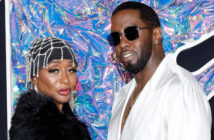Spotify’s chief executive for sub-Saharan Africa, Jocelyne Muhutu-Remy, responds to questions on the origins and development of the popular music style, Afrobeats, which is steadily taking the world by storm from its origin, Lagos Nigeria.
Songs categorized as Afrobeats, a loose grouping of many sounds mainly from West Africa with influences by the Black diaspora, recently inspired the Grammy Awards to include an African music category, cumulatively reached 13 billion streams on streaming platform Spotify in 2022. Streams have increased by 550 percent since 2017 and have come from all across the world.
During an interview with Al Jazeera, Jocelyne Muhutu-Remy speaks on what this means for the continent and the company’s plans to further push African acts to new audiences.
When asked ‘How has Afrobeats influenced the music scene in Africa and around the world in recent years?’
“It’s fair to say that Afrobeats is probably one of Africa’s biggest cultural exports right now, and it is definitely influencing the music being made both on the continent and elsewhere in the world. By its very nature, Afrobeats is an amalgamation of sounds, which is lending itself beautifully to fusions with other musical styles, as well as collaborations with artists from the continent and around the world.
The most streamed Afrobeats song of all time on the Spotify platform is Rema’s Calm Down collaboration with Selena Gomez, for instance. But if you look at Davido’s collaboration with an Amapiano producer like Focalistic, for instance, you can see how the music is really crossing borders and breaking boundaries.
The recent introduction of an African music category at the Grammys is probably also, in large part, due to the massive popularity of genres like Afrobeats and Amapiano across the world right now.
Beyond just influencing the music, however, we are also seeing the impact that genres like Afrobeats are having in exporting other aspects of culture, from fashion to food and even language.”
On what distinguishes Afrobeats from other music genres and what are some of its unique characteristics:
“I think the answer is in the name really- the beat is the thing that distinguishes Afrobeats. That unique 3-2 or 2-3 rhythm forms the basis of the music, and then it’s layered with various musical influences like hip-hop or R&B and then the lyrics which often incorporate West African languages like Pidgin, Yoruba, and Twi. It’s not just music for the sake of music, it’s culture, too.”
Muhutu-Remy also talked about the role of Spotify’s newly launched Afrobeats site, in promoting Afrobeats and African music generally?
“Our newly launched Afrobeats site, which tells the story of Afrobeats, is just one example of how we are doing this.
Streaming provides a global platform so that artists can find audiences anywhere in the world. [We have] various artist support programmes such as EQUAL, which is aimed at raising the profile of talented female artists, RADAR our programme aimed at supporting emerging artists, and Fresh Finds which is aimed at independent artists.
Spotify playlists, like Amapiano Grooves and African Heat as well as Spotify features like the Made for You hub also help to drive discovery, enabling listeners to find music that they love, and artists to connect with new fans.
We’ve also announced a number of new features which will allow fans to not only see where and when their favourite artists are performing, but to also buy tickets and merch, giving artists the opportunity to earn multiple income streams.
Spotify also works with artists and their teams on a number of different projects to help market their music in a way that drives discovery and enables them to thrive. This includes the use of our billboard in New York’s Times Square, which has featured a number of African artists. Beat School, a three-part video series, which explores various African genres with local artists, Music that Moves a documentary about the rise of South Africa’s amapiano, and Spotify Talks which hosts discussions with local artists like Kenya’s Them Mushrooms.”
You can read the rest of the interview on Al Jazeera




